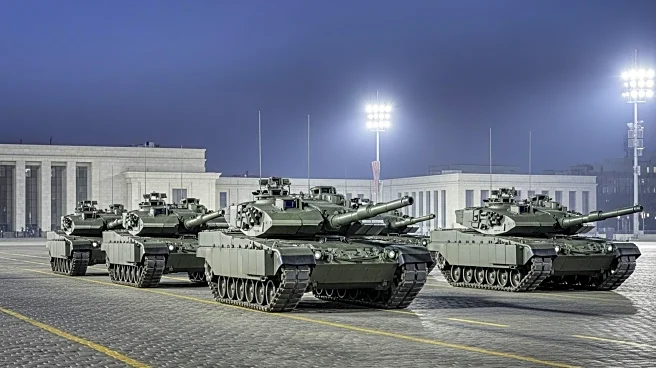What is the story about?
What's Happening?
China recently held a significant military parade in Beijing, marking the 80th anniversary of the end of World War II. The event was attended by global leaders such as Vladimir Putin and Kim Jong-un, showcasing China's growing influence and military might. The parade was intended to contrast with the perceived unpredictability of President Trump's administration in the United States. Despite the display of unity among these leaders, underlying tensions and mistrust persist within the alliance, particularly between China, Russia, and North Korea. The parade served more as a propaganda tool rather than a genuine threat to international stability.
Why It's Important?
The military parade underscores the shifting dynamics in global politics, with China positioning itself as a stable force amidst perceived chaos in the U.S. under President Trump. This development could influence international relations, as countries may reassess their alliances and strategies in response to China's assertiveness. The event also highlights the fragile nature of alliances between authoritarian regimes, which could impact global security and diplomatic efforts. The U.S. may need to address these challenges to maintain its influence and ensure stability in international affairs.
What's Next?
The parade may prompt further diplomatic engagements or tensions between the U.S. and China, as both nations navigate their roles on the global stage. The U.S. might consider strengthening its alliances with other countries to counterbalance China's growing influence. Additionally, internal fractures within the 'axis of upheaval' could lead to shifts in power dynamics, affecting future collaborations or conflicts among these nations. Observers will be watching for any changes in military or diplomatic strategies from the involved countries.
Beyond the Headlines
The parade raises questions about the ethical implications of using military displays as propaganda tools. It also reflects broader cultural shifts, as nations use historical anniversaries to assert their current political narratives. The event may influence public perception of global leaders and their policies, potentially affecting domestic and international support for their agendas.















